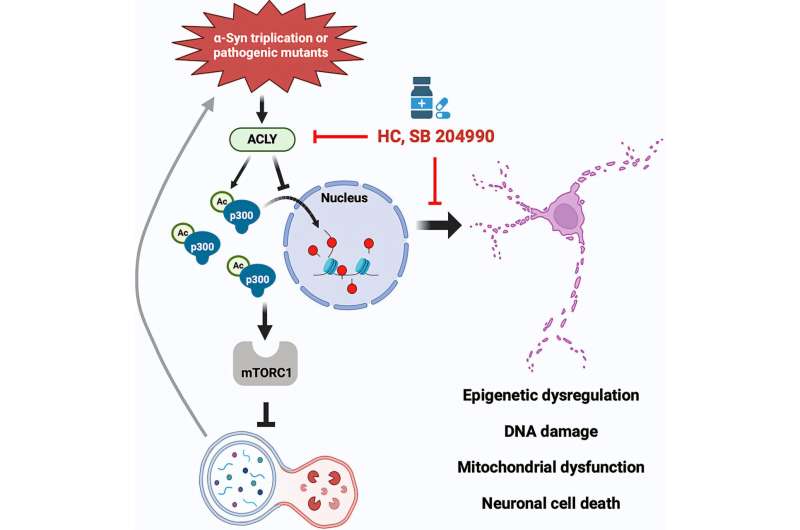In Parkinson’s, a protein known as alpha-synuclein builds up in clumps called Lewy bodies in nerve cells in the brain. These clumps of protein stop these cells from functioning normally, eventually leading the cells to die.
One way our bodies rid themselves of such toxic materials is via a process known as autophagy, where cells break down and recycle unwanted components. But autophagy does not work properly in Parkinson’s, meaning cells are unable to get rid of the toxic alpha-synuclein.
The new study, led by Dr. Sung Min Son and colleagues in Professor David Rubinsztein’s lab at the UK Dementia Research Institute (UK DRI) at the University of Cambridge, uncovered a pathway involving an enzyme known as ACLY, which they found was hyperactivated in Parkinson’s.

